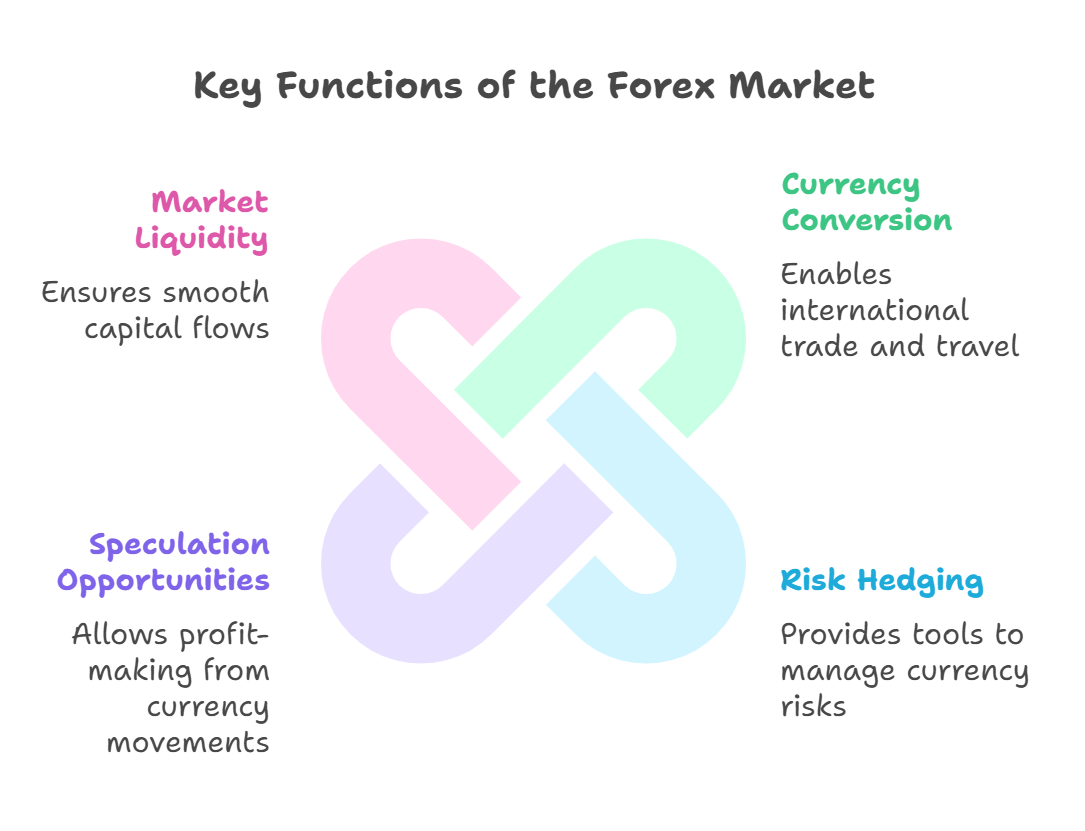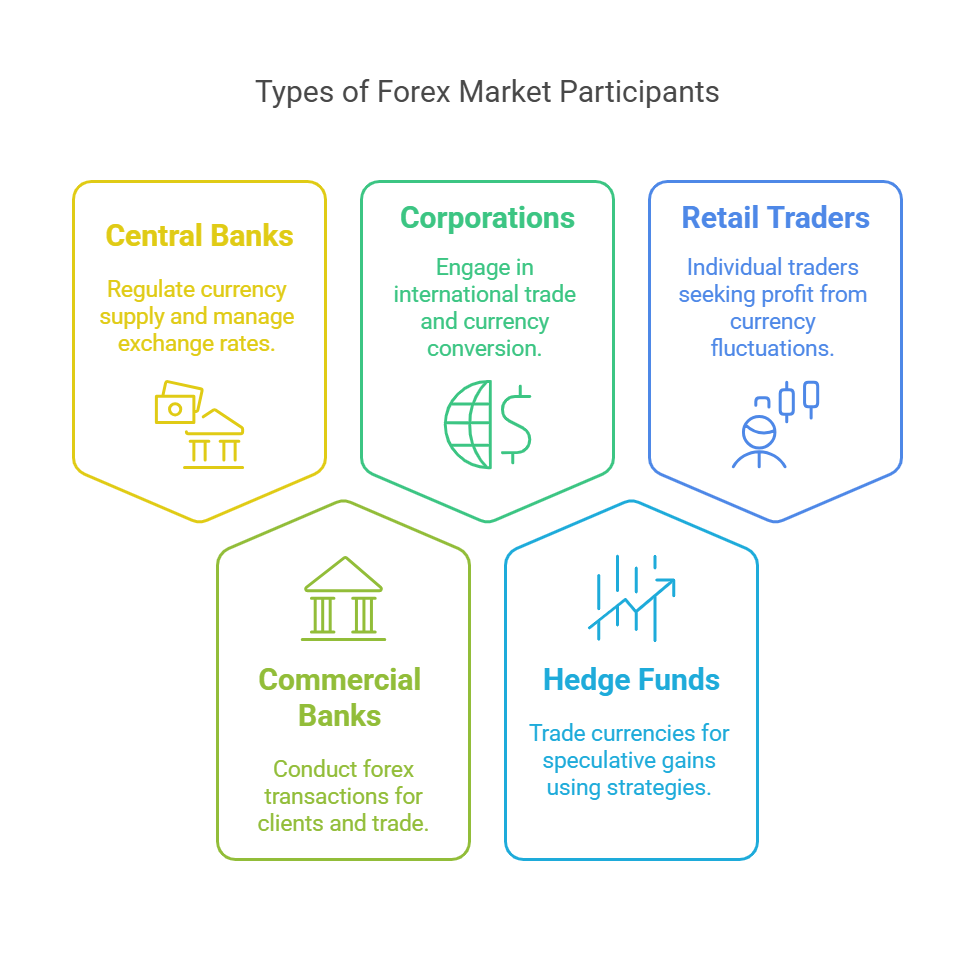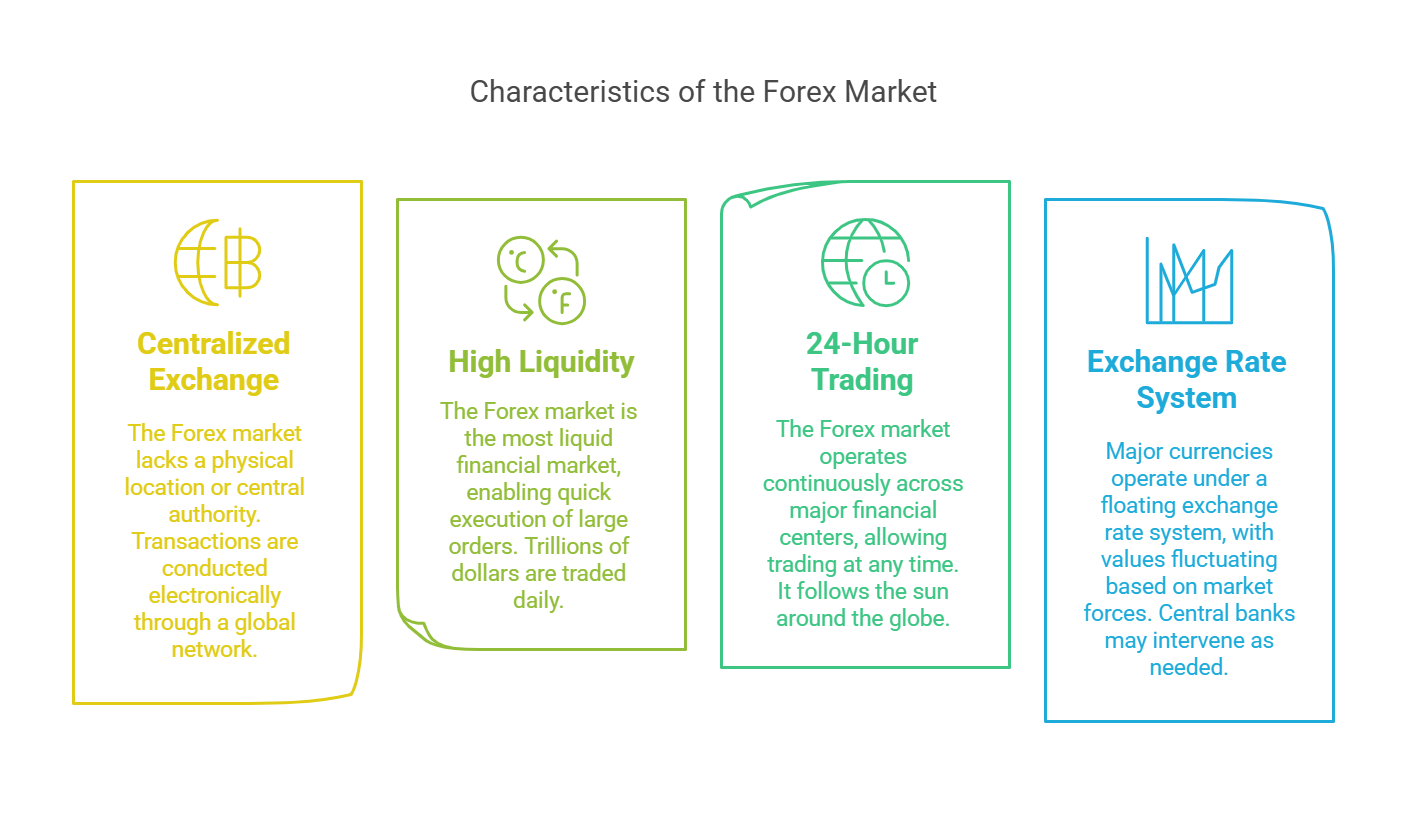Foreign Exchange Market
1. Concept of Foreign Exchange Market
The Foreign Exchange Market (Forex or FX Market) is a global, decentralized marketplace where currencies are traded. It's the largest and most liquid financial market in the world, facilitating the exchange of one currency for another and determining the relative values of different currencies.
2. Purpose of the Foreign Exchange Market
The Forex market serves several critical purposes:
- Facilitates Currency Conversion: Enables individuals, businesses, and governments to convert currencies for international trade, investment, and tourism. Without the Forex market, international transactions would be extremely difficult, if not impossible.
- Helps Hedge Against Currency Risks: Provides tools and mechanisms for businesses and investors to manage and mitigate the risks associated with exchange rate fluctuations. Companies involved in international trade can use forward contracts or other hedging instruments to lock in exchange rates and protect their profits.
- Provides Opportunities for Speculation: Offers opportunities for speculation and profit-making based on anticipated exchange rate movements. Traders attempt to profit by buying currencies they believe will appreciate in value and selling currencies they believe will depreciate.
-
Maintains Liquidity in Global Financial Markets: Ensures liquidity in global financial markets by facilitating the smooth and efficient exchange of currencies, enabling international capital flows and supporting cross-border economic activity.

3. Key Participants in the Forex Market
The Forex market involves a diverse range of participants, each playing a specific role:
-
Central Banks:
- Role: Regulate currency supply, manage exchange rate regimes, and intervene in the market to influence currency values.
- Example: The Reserve Bank of India (RBI) intervenes in the Forex market to manage the volatility of the Indian Rupee (INR).
-
Commercial Banks:
- Role: Conduct forex transactions on behalf of their clients (businesses, individuals, and other financial institutions).
- Also engage in proprietary trading, seeking to profit from exchange rate movements.
-
Corporations:
- Role: Engage in international trade and investment, requiring them to convert currencies to pay for goods and services, repatriate profits, or hedge currency risks.
- Example: An Indian exporter receiving payment in USD will need to convert those USD to INR.
-
Hedge Funds & Investors:
- Role: Trade currencies for speculative gains, seeking to profit from short-term or long-term exchange rate movements.
- Often use sophisticated trading strategies and leverage to amplify their returns.
-
Retail Traders:
- Role: Individual traders participate in the Forex market through brokers, seeking to profit from currency fluctuations.
- The retail segment has grown significantly with the availability of online trading platforms.



No Comments